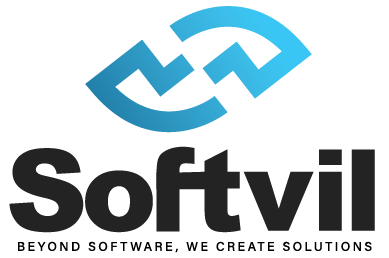Introduction
Data engineers play a pivotal role in designing, constructing, and maintaining robust data systems and infrastructure. Their expertise lies in handling massive datasets, building efficient data pipelines, and ensuring smooth data processing and storage. On the other hand, software engineers are adept at developing software applications, coding algorithms, and implementing comprehensive software solutions tailored to specific needs. By exploring the responsibilities, skills, industry opportunities, and collaborative dynamics of these roles, individuals can gain a deeper understanding of which path aligns better with their interests, strengths, and long-term career goals.
Understanding the Roles
Overview of Data Engineering: Responsibilities, Data Systems, and Infrastructure
- Data Integration: Data engineers integrate various data sources, ensuring that disparate datasets from different systems are consolidated and accessible for analysis.
- Data Modeling: They design and develop data models that enable efficient storage, retrieval, and manipulation of data. This involves understanding the structure of the data, creating schemas, and optimizing data storage formats.
- Data Pipeline Development: Data engineers build robust data pipelines that facilitate the smooth and timely movement of data from various sources to their destinations. These pipelines involve data extraction, transformation, and loading (ETL) processes.
- Database Management: Data engineers work with different database technologies, such as relational databases (e.g., MySQL, PostgreSQL) or NoSQL databases (e.g., MongoDB, Cassandra). They ensure database performance, scalability, and security.
- Infrastructure Management: They set up and manage the infrastructure required for data processing, storage, and retrieval. This can involve deploying and configuring cloud-based services, distributed computing frameworks (e.g., Apache Hadoop, Apache Spark), or data warehousing solutions.
Exploring Software Engineering: Responsibilities, Software Development, and Application-Focused Work:
Software engineering encompasses the process of designing, developing, testing, and maintaining software applications. Software engineers engage in various responsibilities, including:
- Software Development Lifecycle: They participate in the entire software development lifecycle, from requirements gathering and analysis to designing, coding, testing, deployment, and maintenance. This involves collaborating with stakeholders to understand their needs and translating them into functional software solutions.
- Programming and Coding: Software engineers possess expertise in programming languages such as Java, C++, Python, or JavaScript. They write clean, efficient, and well-structured code to implement desired functionalities and algorithms.
- Application Design: They design software applications, considering user experience, scalability, and maintainability. This involves creating user interfaces, architecting system components, and defining software architecture patterns.
- Testing and Quality Assurance: Software engineers ensure the reliability and quality of software through rigorous testing, bug fixing, and performance optimization. They employ testing frameworks and methodologies to identify and rectify defects.
e. Application-Specific Focus: Software engineers may specialize in front-end development, back-end development, or full-stack development. Front-end developers focus on creating user interfaces and enhancing user experiences, while back-end developers build the underlying server-side logic. Full-stack developers have proficiency in both front-end and back-end development, enabling them to work across the entire application stack.
Skills and Interests
Required Skills for Data Engineers: Programming Languages, Big Data Tools, Data Modeling, and Manipulation:
- Programming Languages: Proficiency in programming languages such as Python, SQL, or Java is crucial for data engineers. Python is commonly used for data manipulation and scripting, while SQL is essential for querying and working with databases. Java is often employed for building scalable data systems.
- Big Data Tools: Data engineers should be familiar with big data technologies and tools such as Apache Hadoop, Apache Spark, or Apache Kafka. These tools enable distributed processing, efficient data storage, and real-time data streaming, facilitating large-scale data engineering tasks.
- Data Modeling: Data engineers should have a strong understanding of data modeling concepts and techniques. This includes knowledge of relational data modeling, entity-relationship diagrams, and schema design. Effective data modeling ensures optimal data organization and retrieval.
d. Data Manipulation: Proficiency in data manipulation is essential for data engineers. This involves skills in data cleansing, transformation, and aggregation. Data engineers should be adept at using tools and libraries like Pandas, NumPy, or Spark DataFrame for data manipulation tasks.
Essential Skills for Software Engineers: Programming Languages, Frameworks, Algorithms, and Software Development Lifecycle:
- Programming Languages: Software engineers require expertise in programming languages like Java, C++, Python, or JavaScript. The choice of programming language depends on the specific application and its requirements.
- Frameworks: Familiarity with frameworks is crucial for software engineers. Front-end developers often work with frameworks like React, Angular, or Vue.js, while back-end developers may use frameworks like Spring, Django, or Express.js. These frameworks provide efficient tools and libraries for application development.
- Algorithms and Data Structures: Software engineers should have a solid foundation in algorithms and data structures. This knowledge helps them design efficient algorithms, optimize code performance, and solve complex programming problems.
- Software Development Lifecycle: Understanding the software development lifecycle (SDLC) is vital for software engineers. This includes knowledge of requirements gathering, system design, coding, testing, deployment, and maintenance. Familiarity with agile methodologies and version control systems like Git is also beneficial.
- Problem-Solving and Analytical Thinking: Software engineers should possess strong problem-solving skills and the ability to analyze complex issues. They should be able to break down problems, identify potential solutions, and implement effective strategies.
Industry and Domain Considerations
Analyzing Industries where Data Engineering is Crucial
Data engineering plays a critical role in numerous industries where managing and processing large volumes of data is essential. Some key industries where data engineering is particularly crucial include:
- Finance: In the finance industry, data engineering enables efficient management and analysis of vast financial datasets, facilitating risk assessment, fraud detection, algorithmic trading, and personalized financial services.
- Healthcare: Data engineering plays a vital role in healthcare, where it supports data integration from various sources like electronic health records (EHRs), medical devices, and clinical trials. It enables data-driven insights for improving patient care, disease analysis, drug discovery, and healthcare management.
- E-commerce: In the realm of e-commerce, data engineering helps in managing and processing massive volumes of customer data, purchase history, and transactional data. It enables personalized recommendations, targeted marketing campaigns, inventory management, and supply chain optimization.
Exploring the Versatility of Software Engineering across Various Domains
Software engineering is a versatile field that finds applications across diverse industries. Here are some domains where software engineering is particularly relevant:
- Technology and Software Development Companies: Software engineering is the backbone of technology and software development companies, driving the creation of innovative software products, mobile applications, and web-based solutions.
- Finance and Banking: The finance and banking sector heavily relies on software engineering for building secure and efficient financial systems, trading platforms, risk management tools, and banking applications.
- Healthcare and Biotechnology: Software engineering is essential in healthcare for developing electronic medical records (EMRs), telemedicine platforms, medical imaging systems, and health monitoring applications.
- Gaming and Entertainment: The gaming industry relies on software engineering for developing immersive gaming experiences, game engines, virtual reality (VR) applications, and multiplayer platforms.
- Automotive and Transportation: Software engineering contributes to the development of advanced driver assistance systems (ADAS), autonomous vehicles, and transportation management systems, enhancing safety and efficiency in the automotive industry.
Career Growth and Trends
Current and Future Demand for Data Engineers and Software Engineers
- Data Engineers: The demand for data engineers is on the rise as organizations across industries recognize the value of data-driven decision-making. The exponential growth of data and the need for efficient data processing and analysis contribute to the increasing demand for skilled data engineers. Industries such as finance, healthcare, e-commerce, and technology companies heavily rely on data engineering expertise to harness the power of their data assets.
- Software Engineers: Software engineering remains a highly sought-after skillset in the technology industry. The increasing reliance on software solutions, digital transformation initiatives, and the growing adoption of emerging technologies like artificial intelligence (AI) and the Internet of Things (IoT) contribute to the strong demand for software engineers. Companies across various sectors, from software development firms to finance, healthcare, and gaming, require software engineering professionals to develop and maintain their applications and systems.
Opportunities for Specialization and Emerging Trends in Each Field
- Data Engineering: Data engineering offers opportunities for specialization in various areas. Professionals can specialize in big data analytics, machine learning, data warehousing, cloud computing, or data pipeline automation. Emerging trends in data engineering include the integration of AI and machine learning techniques for advanced data analysis, the adoption of serverless architectures for data processing, and the increasing use of cloud-based data platforms.
- Software Engineering: Software engineers can specialize in different domains such as web development, mobile app development, data-driven applications, or artificial intelligence and machine learning. Emerging trends in software engineering include the rise of low-code and no-code development platforms, the integration of DevOps practices for continuous integration and deployment, the use of containerization technologies like Docker, and the increasing emphasis on cybersecurity and privacy in software development.
As both data engineering and software engineering fields continue to evolve, professionals who stay updated with the latest technologies and trends will have ample opportunities for career growth. Continuous learning, upskilling, and staying adaptable to emerging trends will enable individuals to thrive in these dynamic and rapidly evolving fields.
Conclusion
Ultimately, the decision to pursue a career as a data engineer or a software engineer depends on individual interests, skills, and long-term goals. By understanding the key differences between these roles, aspiring professionals can make informed choices that align with their passions and aspirations. Additionally, considering the dynamic nature of the industry, it is essential to remain adaptable and open to evolving career paths that may combine elements of both data engineering and software engineering.

